Table of Contents
ToggleIn a world where data breaches are as common as coffee spills, privacy compliance isn’t just a buzzword—it’s a necessity. Organizations that ignore the rules might as well be inviting hackers to a party with a “free Wi-Fi” sign. With regulations like GDPR and CCPA, staying compliant is like playing a high-stakes game of chess, where one wrong move could cost more than just a pawn.
Understanding Privacy Compliance
Privacy compliance involves adhering to legal regulations that protect individuals’ personal information. Organizations increasingly prioritize compliance to mitigate risks associated with data breaches and cyber threats.
Definition of Privacy Compliance
Privacy compliance refers to the measures that organizations take to align their data handling practices with relevant laws and regulations. These laws, such as the General Data Protection Regulation (GDPR) and the California Consumer Privacy Act (CCPA), set standards for data protection. Compliance includes obtaining user consent before data collection, ensuring secure data storage, and allowing individuals access to their personal information. Organizations must establish policies and practices that reflect these legal mandates.
Importance of Privacy Compliance
Maintaining privacy compliance is essential for protecting consumer trust. Consumers expect organizations to safeguard their personal data. Non-compliance can lead to significant legal repercussions, including hefty fines and reputational damage. Additionally, adhering to privacy regulations helps organizations establish best practices for data management. Privacy compliance fosters a culture of accountability, encouraging organizations to prioritize consumer privacy and ethical data usage. Such commitments can differentiate organizations in competitive markets where privacy protection is a key concern.
Key Regulations Governing Privacy Compliance

Organizations face a complex landscape of regulations governing privacy compliance. Understanding these regulations is vital for protecting personal information and maintaining consumer trust.
General Data Protection Regulation (GDPR)
GDPR represents a comprehensive framework for data protection within the European Union. It applies to any organization handling personal data of EU residents, regardless of location. This regulation mandates explicit user consent for data processing. Additionally, organizations must provide individuals with the right to access, rectify, or delete their personal data. Non-compliance risks significant fines, which can reach up to €20 million or 4% of annual global turnover. Adhering to GDPR fosters transparency and accountability, enhancing a company’s reputation in global markets.
California Consumer Privacy Act (CCPA)
CCPA establishes specific privacy rights for California residents, requiring businesses to disclose how personal information is collected, used, and shared. Consumers possess the right to know the categories of data collected and can request deletion of their personal information. Businesses must also inform consumers about their right to opt-out of data selling practices. Penalties for non-compliance can amount to $2,500 per violation or $7,500 per intentional violation. By complying with CCPA, organizations strengthen their data handling practices and support consumer empowerment.
Other Relevant Legal Frameworks
Many jurisdictions implement additional privacy laws that further enhance data protection. The Health Insurance Portability and Accountability Act (HIPAA) safeguards medical information in the health sector. Children’s Online Privacy Protection Act (COPPA) provides protections for users under 13, ensuring parental consent for data collection. The Payment Card Industry Data Security Standard (PCI DSS) establishes security measures for processing credit card data. Organizations must navigate these varied regulations to ensure comprehensive compliance and protect sensitive information across multiple sectors.
Implementing Privacy Compliance in Organizations
Implementing privacy compliance requires a strategic approach. Organizations focus on the following steps and utilize various tools to align data practices with legal requirements.
Steps to Achieve Compliance
- Conduct Data Audits: Organizations evaluate existing data practices to identify what personal information they collect and how it’s used.
- Establish Policies: Clear policies for data handling and privacy rights need creation. These policies guide staff on compliance expectations.
- Obtain Consent: Explicit consent from users for data collection and processing should be documented.
- Implement Data Protection Measures: Secure storage solutions and encryption technology help protect personal information from breaches.
- Train Employees: Regular training sessions inform employees of their privacy responsibilities, ensuring everyone understands compliance procedures.
- Review and Update Practices: Regular assessments help organizations stay up-to-date with changing regulations and improve their compliance strategies.
Tools and Resources for Compliance
- Compliance Management Software: Tools such as OneTrust and TrustArc assist organizations in monitoring compliance efforts and streamlining reporting.
- Data Inventory Tools: Software like DataGrail enables companies to manage their data inventory effectively, ensuring accurate documentation of personal data usage.
- Privacy Policy Generators: Online tools create tailored privacy policies that meet legal standards based on specific company needs.
- Training Programs: Online training platforms provide staff with essential knowledge about privacy compliance and best practices.
- Legal Counsel: Engaging with legal professionals specializing in data privacy ensures organizations remain informed of current laws and regulatory changes.
Utilizing a combination of these steps, tools, and resources helps organizations navigate the complexities of privacy compliance effectively.
Challenges in Privacy Compliance
Organizations face significant challenges in maintaining privacy compliance amidst growing data regulations. Adhering to these laws requires ongoing effort and clarity in practices.
Common Pitfalls
Businesses often overlook user consent. Failing to obtain explicit consent can lead to legal consequences. Misunderstanding regulatory requirements presents another common issue. Some organizations assume compliance is a one-time task rather than an ongoing responsibility. Neglecting data protection measures places sensitive information at risk. Addressing privacy concerns inconsistently can damage consumer trust. Lastly, organizations may not track changes in regulations, which can lead to unintentional non-compliance.
Managing Compliance in a Digital World
Navigating privacy compliance in a digital landscape demands vigilance. Organizations must implement robust data management practices across platforms. Utilizing technology helps streamline compliance processes, ensuring accurate data handling and storage. Employees should receive training to understand privacy responsibilities effectively. Establishing a culture of accountability fosters ongoing compliance efforts. Regular audits and reviews of data practices keep organizations aligned with current regulations. Leveraging compliance management tools can enhance oversight and minimize compliance risks.
Future Trends in Privacy Compliance
Organizations face a rapidly changing landscape in privacy compliance. An increasing number of regulations reflect heightened consumer awareness and demand for data protection.
Evolving Regulations
Regulations constantly evolve to address emerging privacy concerns. For example, the General Data Protection Regulation (GDPR) set a precedent by emphasizing individual rights, while the California Consumer Privacy Act (CCPA) introduced specific protections for residents. New jurisdictions are also implementing similar frameworks, creating a need for organizations to stay updated on compliance requirements. Organizations that neglect these changes risk facing significant penalties. Adopting a proactive approach to regulatory changes ensures organizations can adapt and maintain compliance effectively.
Impact of Emerging Technologies
Emerging technologies profoundly influence privacy compliance practices. Artificial intelligence and machine learning facilitate data analysis but raise concerns over data usage and consent. Blockchain technology offers opportunities for enhanced data security but requires careful consideration of privacy laws. Furthermore, the Internet of Things (IoT) generates vast amounts of personal data, necessitating robust compliance frameworks. Organizations must leverage these technologies to strengthen privacy practices while balancing innovation with regulatory obligations. Each technological advance presents both challenges and opportunities in managing privacy compliance.
Maintaining privacy compliance is no longer optional; it’s a necessity for organizations aiming to build trust and protect sensitive data. As regulations evolve and consumer expectations rise, businesses must adapt their practices to stay ahead of potential risks.
Implementing robust data management strategies and fostering a culture of accountability can significantly mitigate compliance challenges. Organizations that prioritize privacy not only safeguard their reputation but also position themselves as leaders in a competitive marketplace.
By staying informed and proactive, they can navigate the complexities of privacy regulations and ensure they’re prepared for the future of data protection.




